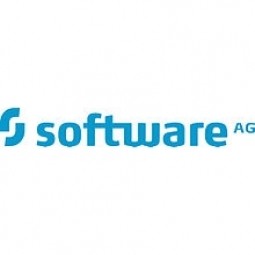下载PDF
Integrated portfolio management at Continental
技术
- 应用基础设施与中间件 - 数据交换与集成
适用行业
- 汽车
适用功能
- 离散制造
- 商业运营
用例
- 自动化制造系统
- 资产生命周期管理
服务
- 系统集成
挑战
Continental, a major supplier to the automotive industry, faced a significant challenge due to its rapid growth through acquisitions. This growth left the company with a legacy of diverse IT systems, making it difficult to have a clear view of the IT landscape. The company needed to standardize its applications to conform to industry standards and align more closely with the business. The complexity of the situation was further compounded by the fact that Continental is known for its tires, but it is a vital supplier at all stages of the automotive manufacturing process. The company's automotive business grew rapidly through twelve major acquisitions since 2000, increasing its capability and expertise but also its IT complexity.
关于客户
Continental is a Germany-based global firm known for being one of the largest suppliers to the automotive industry. The company is recognized for its tires, but it also plays a vital role at all stages of the automotive manufacturing process. Across its five divisions – Chassis & Safety, Powertrain, Interior, Tires, and Contitech – Continental produces parts for all the major vehicle makers, covering everything from electronic brake systems to transmissions, driver instrumentation, and air spring systems. The company has seen rapid growth through twelve major acquisitions since 2000, which has significantly increased its capability and expertise. The Continental Corporation Automotive Group has approximately €16 billion in sales and employs 87,000 people.
解决方案
Continental Automotive turned to planningIT to integrate all of its IT portfolios. After working with planningIT for around 18 months, the company made significant advances in integrating its IT portfolio. It established a central application repository, assigned ownership of applications, and established functional frameworks for all IT areas. Furthermore, it identified around 10% of existing applications that could be retired. A significant achievement was bringing SAP into planningIT, which included establishing an SAP data model, gaining visibility over all current productive SAP systems, maintaining interfaces, and assigning SAP system responsibility to regions, business units, or functional areas. The Enterprise Architecture (EA) team agreed upon a new application portfolio strategy, judging any application – current or prospective – on criteria such as contribution to current and future business success, costs, risk factors, technical quality, and functional quality.
运营影响
数量效益
相关案例.

Case Study
Integral Plant Maintenance
Mercedes-Benz and his partner GAZ chose Siemens to be its maintenance partner at a new engine plant in Yaroslavl, Russia. The new plant offers a capacity to manufacture diesel engines for the Russian market, for locally produced Sprinter Classic. In addition to engines for the local market, the Yaroslavl plant will also produce spare parts. Mercedes-Benz Russia and his partner needed a service partner in order to ensure the operation of these lines in a maintenance partnership arrangement. The challenges included coordinating the entire maintenance management operation, in particular inspections, corrective and predictive maintenance activities, and the optimizing spare parts management. Siemens developed a customized maintenance solution that includes all electronic and mechanical maintenance activities (Integral Plant Maintenance).

Case Study
Monitoring of Pressure Pumps in Automotive Industry
A large German/American producer of auto parts uses high-pressure pumps to deburr machined parts as a part of its production and quality check process. They decided to monitor these pumps to make sure they work properly and that they can see any indications leading to a potential failure before it affects their process.









